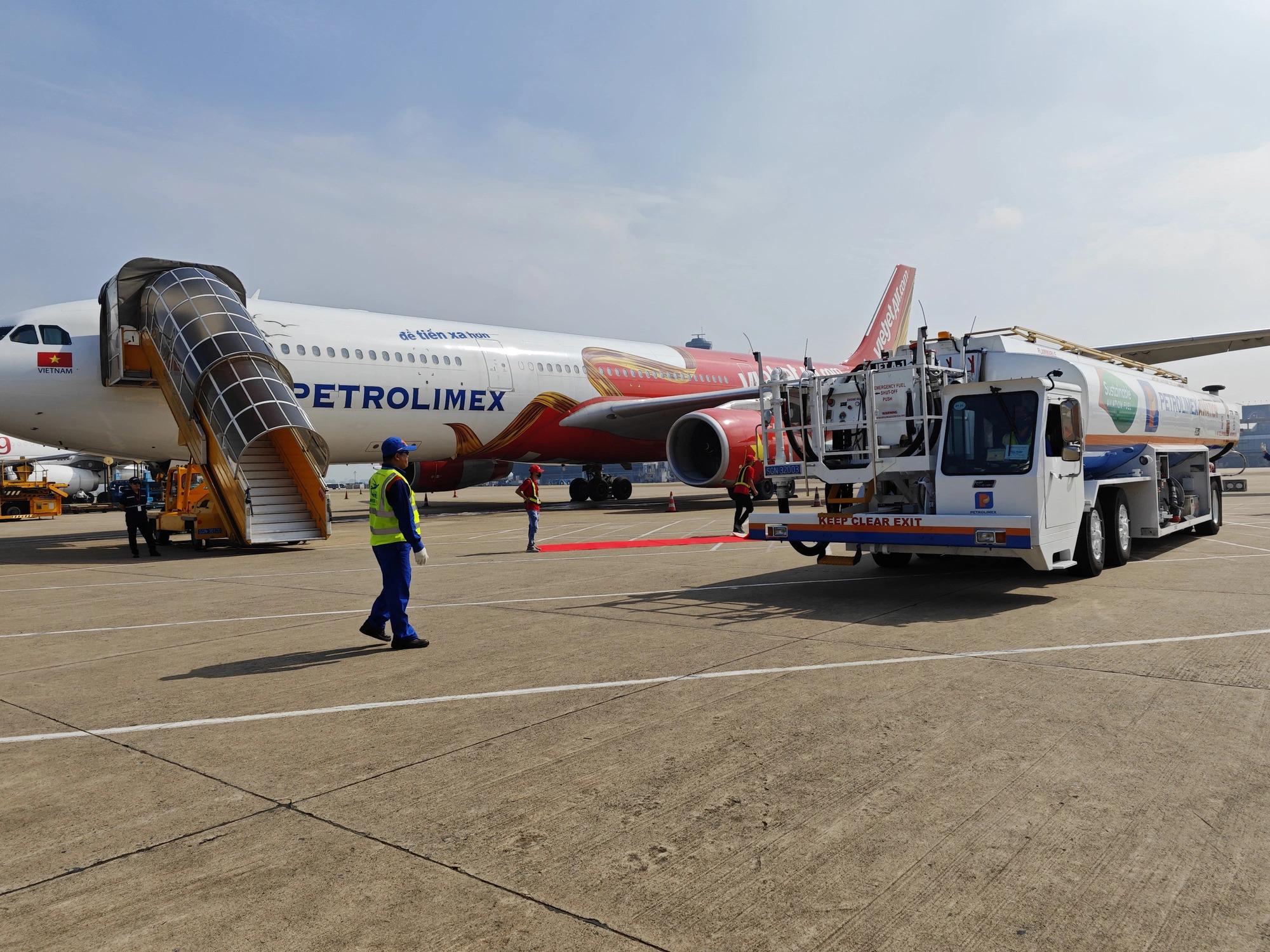Vietnamese budget carrier Vietjet on Thursday operated two flights from Ho Chi Minh City to Australia’s Melbourne and South Korea’s Seoul using sustainable aviation fuel (SAF) provided by Petrolimex Aviation Fuel Joint Stock Company.
SAF, which is produced from renewable and sustainable feedstocks such as used cooking oil, agricultural by-products, wood biomass, and urban waste, can reduce carbon emissions by up to 80 percent compared to traditional fossil fuels, while still meeting stringent international aviation standards and being safe for commercial flight operations.
Addressing a ceremony held the same day to mark the successful launch of Vietnam’s first international flights using SAF provided domestically, Dinh Viet Thang, head of the Civil Aviation Authority of Vietnam, said that these flights represent a significant milestone not only for both companies but also for the entire Vietnamese aviation industry.
He also affirmed that Vietnam is committed to being a responsible member of the global aviation community.
Pham Van Thanh, board chairman of Vietnam National Petroleum Group, the parent company of Petrolimex Aviation, emphasized the company's ongoing commitment to researching, developing, and regularly supplying SAF, contributing to the sustainable transformation of the aviation industry.
Vietjet CEO Dinh Viet Phuong said that Vietjet remains committed to further reducing carbon emissions in aviation and fostering sustainable growth.
The airline has also worked with reputable international partners to research, develop, supply, and implement SAF, in line with Vietnam’s commitment at COP26 to achieve net-zero emissions by 2050, Phuong added.
Alongside these initial flights, SAF production costs are expected to decrease further, ensuring its viability for broader commercial use.
Earlier, the country’s national flag carrier Vietnam Airlines managed to operate a flight using SAF on the Singapore - Hanoi route, but the flight was refueled internationally.
Many airlines worldwide have shifted to flying with cleaner fuels.
Vietnam is following this trend in spite of the higher costs of these sustainable fuels.
Late last year, UK-based Virgin Atlantic completed the world’s first flight using 100 percent SAF.
In 2024, Air France plans to use a 50-percent mix of fossil fuel and SAF for its fleet.
In Southeast Asia, Singapore has been using SAF since 2017 and is expanding its usage.
Kelvin Lee, assistant director of the International Air Transport Association, stated that 320 member airlines, representing 83 percent of global air traffic, are committed to achieving net-zero emissions.
In Vietnam, three carriers, Vietnam Airlines, Vietjet, and Bamboo Airways, are also working toward this goal.
Like us on Facebook or follow us on Twitter to get the latest news about Vietnam!


















































